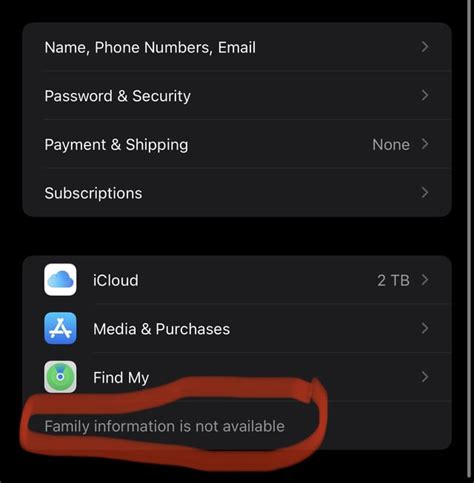When faced with the absence of family information, individuals can feel a profound loss and uncertainty about their identity and place in the world. This can stem from various circumstances, such as adoption, estrangement, or the passing away of loved ones without leaving behind any records. The lack of family information can have a significant impact on one’s sense of belonging, self-worth, and ability to access essential services.

Understanding the Impact of Missing Family Information
The consequences of not having access to family information are far-reaching. It can affect an individual’s:
- Emotional well-being: Feelings of isolation, grief, and confusion are common among those who lack family information. They may struggle to establish a sense of identity and belonging, leading to low self-esteem and difficulty forming meaningful relationships.
- Practical challenges: Without knowing their family history, individuals may face barriers in obtaining legal documents, accessing healthcare, and making informed decisions about their future.
- Cultural and spiritual connections: Family information often provides a link to one’s ancestors and cultural heritage. Its absence can hinder an individual’s ability to connect with their roots and participate in cultural activities.
Common Mistakes to Avoid
When dealing with the absence of family information, it’s important to avoid common mistakes that can further complicate the situation:
- Seeking closure at any cost: While it’s natural to desire answers, it’s essential to approach the search for family information with realistic expectations. Not all cases can be resolved, and the process can be emotionally demanding.
- Giving up easily: Even if the search for family information initially proves challenging, it’s crucial to persevere. There are resources and professionals available to assist individuals in their efforts.
- Ignoring the emotional impact: The absence of family information can be deeply distressing. It’s important to acknowledge and process the emotions associated with the loss and seek support from friends, family, or a therapist.
How to Navigate the Challenges
Navigating the challenges associated with missing family information requires a multifaceted approach:
- Embrace uncertainty: Accept that there may not be easy answers and that some questions may remain unanswered. This can help reduce the anxiety and pressure associated with the search.
- Seek support: Connect with others who have faced similar experiences. Support groups, online forums, and counseling can provide a safe and understanding environment to share thoughts and emotions.
- Explore alternative sources: Look beyond traditional family records. DNA testing, public databases, and social media can sometimes provide valuable clues for piecing together one’s family history.
- Legal avenues: In certain cases, legal action may be necessary to obtain access to sealed records or birth certificates. It’s advisable to consult an attorney for guidance.
A Step-by-Step Approach to Uncovering Family Information
While there is no one-size-fits-all solution to finding family information, the following steps can provide a framework:
- Gather available records: Check for any existing documents or information from family members, friends, or previous caregivers.
- Search public resources: Explore online databases, local libraries, and government records for potential leads.
- Consider DNA testing: This can provide valuable insights into biological connections and identify potential relatives.
- Investigate adoption agencies: If you were adopted, contact the agency that handled the placement to inquire about any available information.
- Seek professional help: A therapist or licensed social worker can assist with processing emotions, creating a search plan, and finding support resources.
Resources for Assistance
Numerous organizations and resources can provide assistance to individuals seeking family information:
- National Adoption Reunion Registry: Connects adopted individuals with their birth parents and siblings.
- National Missing and Unidentified Persons System (NamUs): Provides a database of missing persons and unidentified bodies.
- FamilySearch: Offers access to extensive genealogical records and research tools.
- International Committee of the Red Cross (ICRC): Assists families separated by conflict and provides tracing and family reunification services.
- American Red Cross: Offers emergency family tracing services and support to disaster victims.
Conclusion
Navigating the absence of family information can be a challenging yet empowering journey. By understanding the impact, avoiding common pitfalls, and seeking support, individuals can find ways to cope with the loss and create a meaningful life for themselves. While the absence of family information may never be fully filled, the search for answers can provide a sense of closure and a deeper understanding of who we are.
